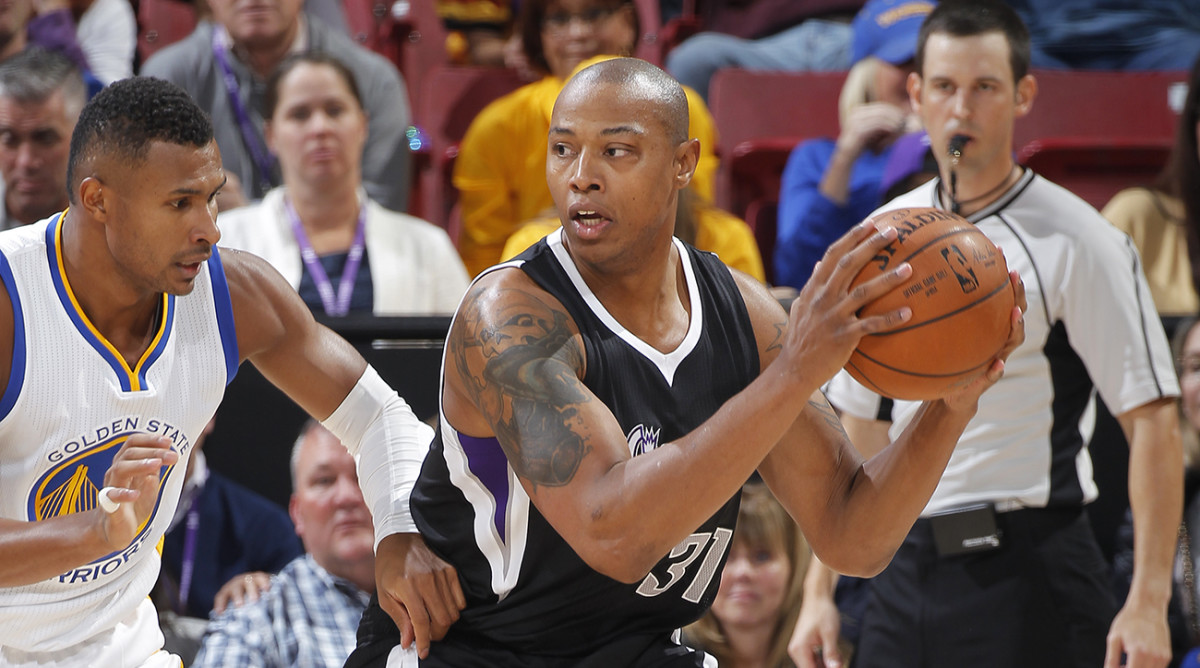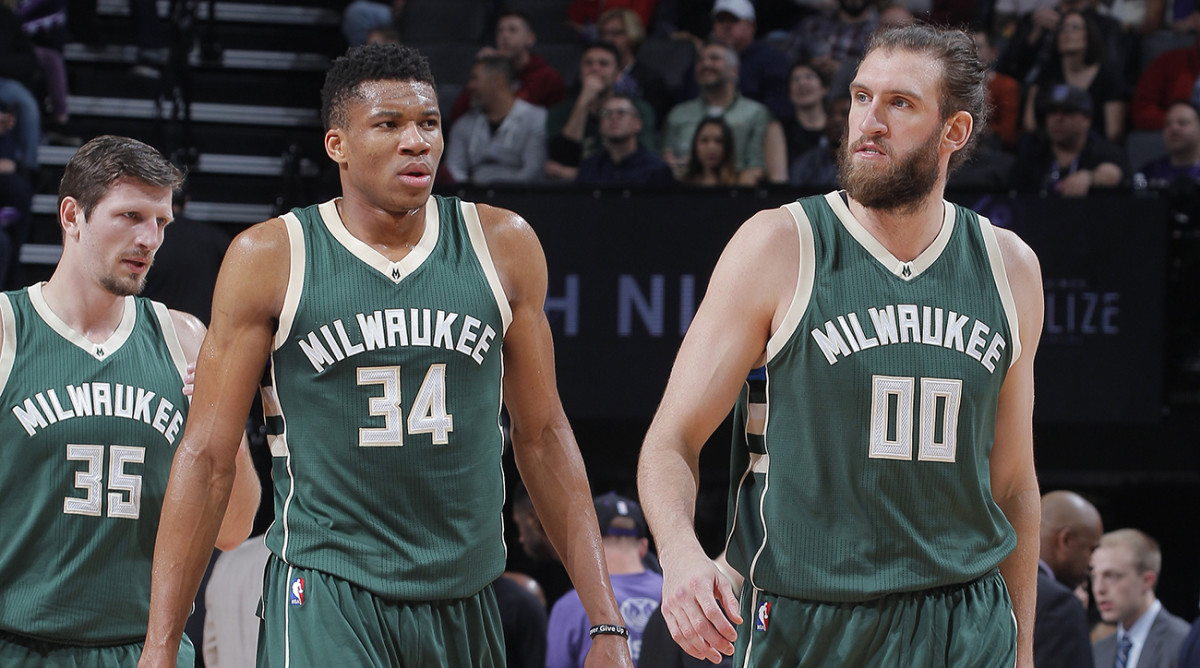For NBA Free Agents, the Stretch Provision Comes With Cash and Complication

Demetrius Jackson’s 12 months in Philadelphia came to a close on Sunday, when the Sixers waived their reserve point guard and effectively ended his two-way contract. The maximum 45 days in which Jackson could spend in the NBA with the 76ers, rather than the team’s G-League affiliate Delaware Blue Coats, was quickly approaching and a lucrative deal in China awaited him. All's well that ends well on the fringes of the world’s premier basketball league, especially when the team that drafted you three years ago also still pays you almost $93,000 this season.
The Celtics selected Jackson with the 45th pick in 2016. One month later, Boston inked the whirling Notre Dame product to a four year, $5.5 million contract, boasting an average annual salary of $1.38 million, essentially equal to the pay of that year’s No. 23 overall pick. Jackson had realized his dream. After a childhood entrapped in a brutal foster system, at one point bouncing between five different homes in two years, he had arrived. Only Boston assigned Jackson to their G-League affiliate Maine Red Claws 15 times that 2016-17 season, ultimately waiving him on July 15 while creating cap space to sign All-Star free agent Gordon Hayward.
NADKARNI: NBA Free Agency Is Not Always Your Friend
Following a clause ratified by the 2011 Collective Bargaining Agreement, any player contract waived between July 1 and Aug. 31 must be released via the stretch provision, which pays the withstanding salary over twice the number of outstanding years plus one additional year. Outside of those dates, any contract waived with over $250,000 remaining in guaranteed salary must be tangibly paid in those same increments for that season. That clause is scripted in the uniform player contract each individual signs, enacting 24 semi-monthly payments beginning on Nov. 15 each season. There are currently 21 players being paid by teams that no longer employ their services. Here's a glance at some of at what teams across the league are paying out each year:
The Celtics will continue to pay the aforementioned Jackson $92,857 every year through 2022-23, while Brooklyn will pay Deron Williams $5.4 million through 2019-20. Detroit is still paying Josh Smith $5.3 million through 2019-20, Golden State is dropping $945,126 on Jason Thompson through the end of this season and the Rockets owe Troy Williams $122,741 through 2020-21. The mercurial Monta Ellis is on Indiana’s books for $2.2 million through 2021-22 and the Clippers will pay Carlos Delfino $650,000 and Miroslav Raduljica $252,043, respectively, through 2019-20. Down the road Luol Deng will earn $5 million from the Lakers through 2021-22 and next season the Knicks will begin sending Joakim Noah $6.4 million through 2021-22.
In addition to the remaining money on Tom Thibodeau's contract, Minnesota will pay Cole Aldrich $685,340 through 2020-21. Thibodeau's former backup point guard, CJ Watson, will earn $333,333 per year until 2019-20 from the Magic. There's Dakari Johnson in Memphis, who will siphon $459,414 through 2020-21. The Heat owe big man AJ Hammons $350,087 through 2020-21, the Bucks will pay Spencer Hawes $2 million through 2019-20 and Larry Sanders $1.865 million through 2021-22 and Oklahoma City has Kyle Singler on the books for $999,200 through 2022-23. Portland has a number of lingering contracts, owing Andrew Nicholson $2.8 million through 2022-23, Anderson Varejao $1.9 million through 2020-21 and Festus Ezeli $333,333 through 2019-20. The Raptors will cut $1 million checks to Justin Hamilton through 2019-20 and the Wizards owe Martell Webster $833,333 through the conclusion of this campaign. Big veteran names are still earning checks as well, as the Kings must pay Matt Barnes $2.1 million through 2019-20 and Caron Butler $517,220 through the end of this season, with San Antonio is pushing Tim Duncan $1.8 million for this campaign.

Butler signed a two-year, $3 million contract with the Kings in 2015, yet after one season in Sacramento’s dysfunctional DeMarcus Cousins era, the 13-year-veteran opted to walk away from the game. “I was ready to retire,” Butler says. “The situation obviously didn’t work out.” The Kings waived him first, a common practice, allowing Butler to receive the remaining $1.5 million of his deal. That’s why Duncan is still being paid by San Antonio. Butler collects his outstanding salary in bi-weekly checks of roughly $20,000. “Still getting paid every month by the Sacramento Kings, it’s the s---. It’s a good situation to be in, knowing you’ve got some more cash flow coming in,” Butler says. “My kids love it.” When finalizing his departure from Sacramento, Butler was originally unaware of the time period it would take to acquire his funds. Yet having earned over $80 million during his career, the arrangement seemed satisfactory. “I was just like, you know what, this will work,” Butler says.
Other aren’t nearly as content. Spencer Hawes would have preferred to receive the remaining $6 million of his four-year, $23 million contract up front. “It’s nice having an income, but it’s also nice having your money and getting to invest in different areas when opportunities strike,” he says. “Maybe give the owners the opportunity to not have it hit their books all at the same time, but the fact that the players get penalized and have to wait for it, it’s another thing that’s kind of frustrating.” Ironically, the Clippers waived Delfino and Raduljica in 2014 via the stretch provision in order to create the cap space to ink Hawes’s deal. Yet the Bucks are cutting the sharpshooting center’s enduring checks after waiving Hawes in in 2017. The week before, Hawes, whom Milwaukee acquired before that February’s trade deadline, attended the Bucks’ team retreat in California, joining pickup runs with his teammates and expecting to reconvene for training camp. “It definitely caught me by surprise, to say the least,” Hawes says.
Hawes has stayed in game shape, training in his native city of Seattle. Last season, his first on the outskirts of the NBA since 2007, he grew excited with each passing rumor and every potential roster opening. “I don’t want to go out getting cut,” Hawes says. “I know it’s a rare thing to kind of go out on your terms. But I still have a lot in the tank. I don’t want to look back and say I was done at 29 and just kind of gave up on it.” He also wants to argue for a better system for players waived via the stretch position, and Hawes, a former Players Association team representative, plans to address his concerns during the NBPA’s meeting for union members over All-Star Weekend or at their session held during the offseason.
SHAPIRO: Giannis Wins MVP Battle, But Harden Could Take War
Should a player’s contract be stretched and said player proceeds to collect his money either in retirement, like Butler, or as a free agent, like Hawes and several others listed above, that player is no longer eligible for the benefits the NBA and Players Association provide to players on active rosters, despite still receiving a paycheck. As such, inactive players are not included in the league’s 401K and 401K match services. The NBPA believes they offer the most competitive benefits package of any professional sports league, and it’s an incredibly valid stance. Retired players are eligible to enroll in the union’s retired players healthcare system, and veterans with 10-plus years of service can receive health insurance for themselves and their entire family. Further, the union continues to introduce programs that assist its members in post-playing career investment and professional opportunities as well.
Yet free agents, like Hawes, who have been stretched are not afforded healthcare. When a player is waived, his insurance upholds for the remainder of that month, only then players will receive a letter explaining how to become covered by COBRA, a federal program that allows a person and his or her dependents continued medical benefits after losing a job or experiencing a reduction of work hours. Free agents’ stretch checks are also ineligible to contribute to their pensions. The U.S. Department of Labor restricts the NBPA to only provide their superior benefits package to players holding active roster spots.
The same goes for the league’s escrow, a program also enacted following the 1999 CBA and maintained following the 2017 negotiations. Each season, 10% of players’ individual salaries, including stretch salaries, are withheld from their paychecks and deposited into an escrow account. That money is effectively frozen until year’s end, when the NBA evaluates the combined income of the players’ collective, guaranteed share of basketball-related income, salaries and benefits. Players and owners bargained to split between 49% and 51% of BRI, and if players ultimately earn more than their respective amount, the overage is returned to teams and the league from that escrow account. If the players’ don’t receive their guaranteed maximum, falling short of their bargained share, the money allotted to make up for that shortfall is divvied amongst the players in addition to the escrow money being returned. The catch: Stretched free agents like Hawes see 10% of their salary barred into escrow, but simultaneously are void from earning any potential shortfall money should their portion of the BRI not meet the mandatory threshold. In the event of a shortfall kickback, Hawes's 10% would go back to him, but he's not included in that extra pool of money split only by the active players from that season.

Logically, the concept makes sense. While those stretched salaries are part of the collective players’ earnings each season, those contracts are not employing active players who ultimately contribute to generating basketball-related income. That doesn’t make the escrow situation any less of a catch-22. “You assume all the risk with no upside,” Hawes says. “Why would we give you this tool, to clean up [teams’] salary-cap situations—which are messes that they get themselves into—why would we give you this tool without getting anything back for the players on the flip side? That’s what frustrates me about it. It’s nice having the income, but it’s also nice having a roster spot and being able to take advantage of everything else that comes along with it.”
The union has acknowledged Hawes’s complaint, yet the benefits eclusion, like the ill-fated escrow stipulation, with any player earning salary who's not on a roster is mandated result of the Department of Labor’s rigid restrictions. It remains to be seen whether the NBPA will attempt to address this corollary in the next CBA, with both the NBPA and the league having a chance to opt out of the current labor deal in 2023. For now, the checks will continue filtering into players’ bank accounts, whether they’re simultaneously playing in China, under contract for another NBA team, or waiting at home for another chance on the world’s biggest stage.
